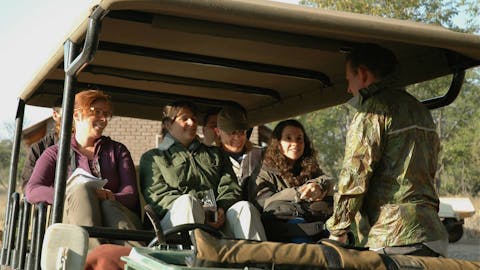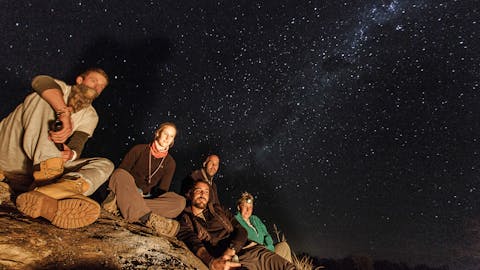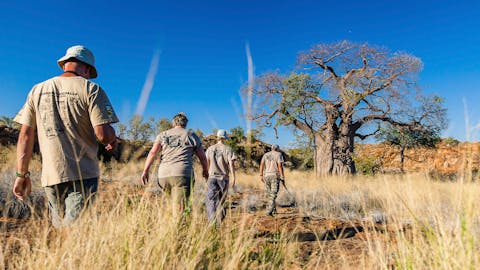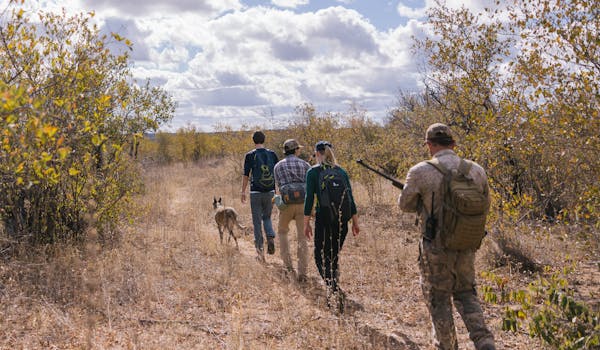Make it yours
Every experience is customised to be just right for you.
Few places on Earth compare to the Greater Kruger, the third largest protected area in Africa and a diverse ecosystem where over 2,000 lions roam, African wild dogs hunt, and critically endangered black rhinos can still be seen in the wild. In the heart of the bush, you’ll experience what it really means to be a game ranger and conserve South Africa’s spectacular wildlife.
You’ll learn how to read the bush, from interpreting animal tracks on the ground to recognising the distant whooping call of a hyena. You could find yourself tracking rhinos through the bush on foot, setting up camera traps to monitor elusive species such as leopards, or learning about protection efforts from an anti-poaching specialist. All of this in a private reserve, far away from tourist crowds. You’ll emerge brimming with bush skills, a real understanding of the Big Five and lesser-known species, and enough stories to last a lifetime.



You could find yourself monitoring wildlife in the Greater Kruger, tracking critically endangered rhinos on a bush walk or visiting an animal rehabilitation centre that cares for injured and poisoned animals. This experience gives you a rare glimpse into various aspects of conservation and the chance to roll up your sleeves and make a real difference.
Out in the bush, learn how rangers identify, monitor and track hundreds of different species. Every animal sighting, sound, or track on the ground gives insight into their behaviour and movement, and can help shape vital conservation decisions.
The Greater Kruger is one of only five areas in Africa with a mega population of over 2,000 lions and the world’s largest population of white rhino. It’s also home to over 500 species of birds, and is one of the few places that you can see African wild dogs. You’ll support the protection of this vast ecosystem and get the chance to see African wildlife thriving like nowhere else.
This project is located in a remote area of the Greater Kruger where wildlife roams freely but human visitors are highly limited. This gives you the chance to monitor iconic wildlife far from the tourist crowds, surrounded only by the sounds of the bush.
You’ll support the project team in real wildlife monitoring work and acquire skills in wildlife tracking.
Ongoing monitoring of wildlife in the Greater Kruger is essential to understanding and protecting iconic African species, and is a core part of a ranger’s role.
Depending on the work taking place at the time, you could observe and assist:
You’ll get involved in a wide range of activities and understand the bigger picture of wildlife conservation in South Africa.
In addition to monitoring and tracking you will:
You’ll learn about the behaviour, biology and ecology of iconic African species. You’ll also learn about ongoing conservation efforts to protect wildlife in the Greater Kruger. Depending on the project’s work at the time, this could include a range of the following topics:
Related experiences
Explore programs similar to this one.

Care for orphaned rhinos at a specialist centre and collect vital data to contribute to long-term rhino protection
View details for Rhino Conservation Adventure